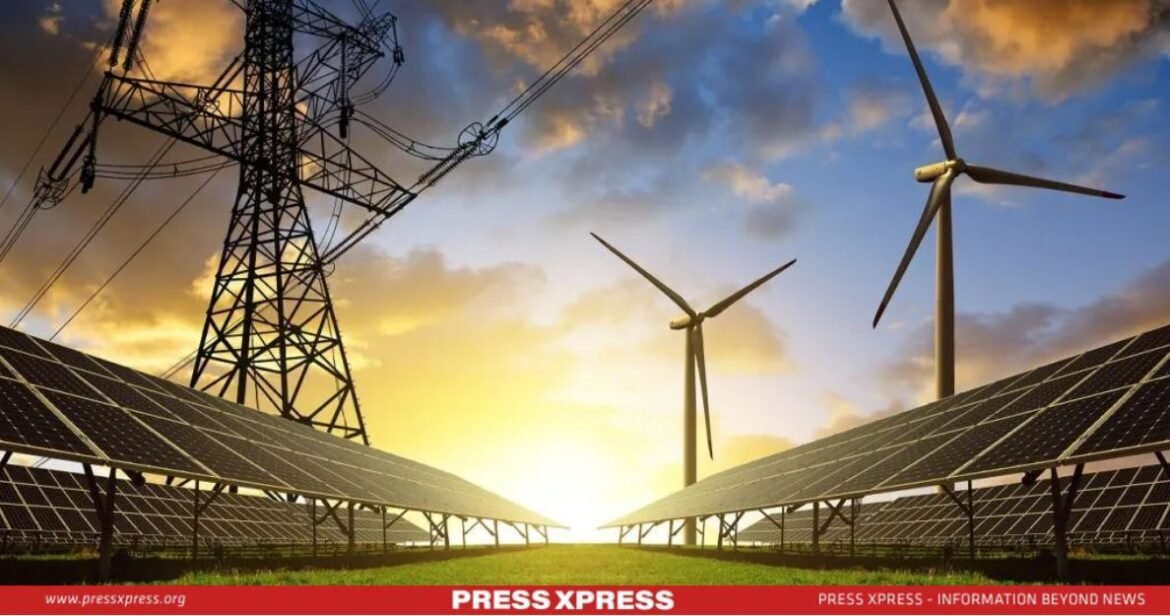Key Highlights:
- The Australian Government is driving over $65 billion in renewable energy investments through the Capacity Investment Scheme by 2030
- Australia is a key player in the production of 9 out of 10 minerals essential for lithium batteries, including lithium, cobalt, nickel, copper, and manganese
- Bangladesh aims to reduce carbon emissions by 21.8% by 2030
The world has managed to “bend the curve” of global emissions, reducing their growth rate. However, keeping climate change well below 2°C remains a significant challenge, particularly for materials- and energy-intensive sectors. Global emissions need to decrease by approximately 70% by 2050, even as the world’s population grows by 20% and the economy doubles.
Heavy industry faces multiple challenges: reducing fossil fuel use and non-combustion emissions, finding alternatives to fossil fuel-based chemical processes, and meeting the increasing demand for materials critical to the energy transition.
You can also read: US Tests Hypersonic Missile as NATO-Russia Tensions Escalate
Australia is well-positioned to tackle these challenges and emerge as a new energy superpower. SunDrive Solar, an Australian company, has addressed a significant problem by replacing the silver in solar cells with copper, a feat previously deemed impossible. This innovation is part of the government’s Future Made in Australia plan, which aims to transform the country into a “renewable energy superpower” through policies that support homegrown green industries.
Despite this progress, some experts doubt whether the $A22.7 billion ($15 billion; £11.8 billion) package—comprising tax incentives, loans, and grants—is sufficient to achieve these ambitious goals.
In parallel with Australia’s efforts, Bangladesh is also making significant strides toward renewable energy and sustainability. The country is actively pursuing its renewable energy targets and is dedicated to the global fight against climate change.
Australia Bets Big on Renewable Industries with Innovation Funds
Australia’s abundant renewable energy potential offers a major advantage. The Government is driving over $65 billion in renewable energy investments through the Capacity Investment Scheme by 2030.
The Budget aims to provide cheaper, cleaner energy, allocating $27.7 million to integrate consumer energy resources like batteries and solar power into the grid. The New Vehicle Efficiency Standard could save Australians around $95 billion on fuel costs by 2050 and reduce transport emissions.
To boost new industries, the Budget establishes the $1.7 billion Future Made in Australia Innovation Fund and extends funding to the Australian Renewable Energy Agency for another decade. It includes the $44.4 million Energy Industry Jobs Plan and $134.2 million for skills and employment support in key regions.
The Future Made in Australia package introduces temporary incentives for emerging industries. The Hydrogen Production Tax Incentive, costing $6.7 billion over 10 years, aims to expedite Australia’s hydrogen projects. The Budget also expands the Hydrogen Headstart program by $1.3 billion.
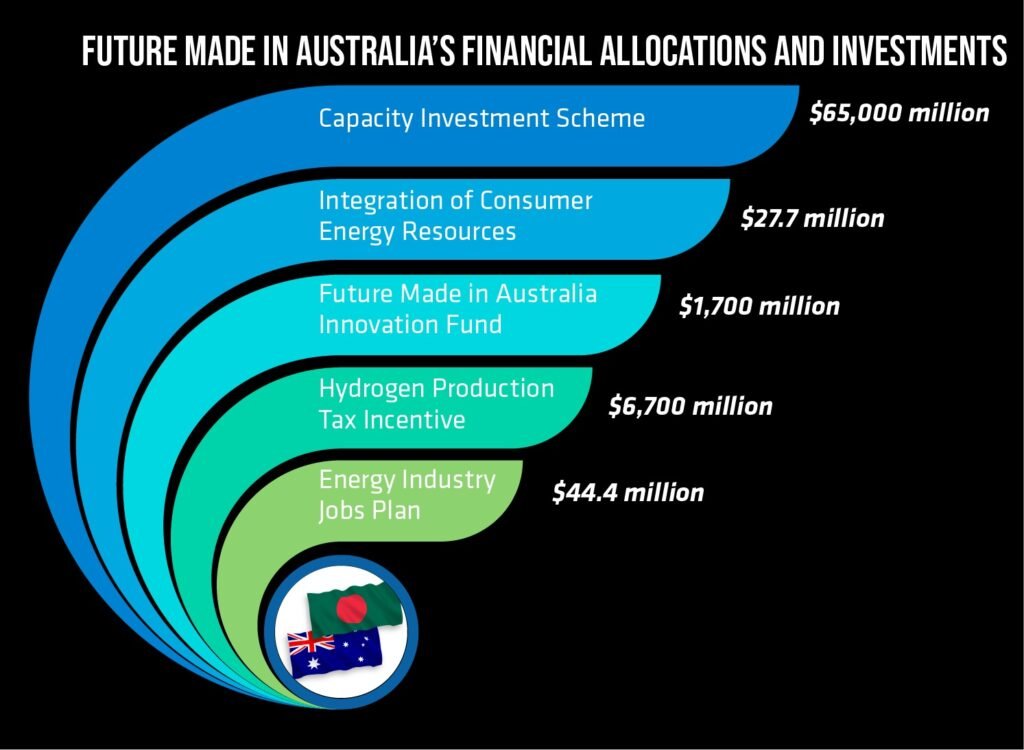
Untapped Potential in the Clean Energy Race
Australia is a key player in the production of 9 out of 10 minerals essential for lithium batteries, including lithium, cobalt, nickel, copper, and manganese. There’s a growing emphasis on refining and processing critical minerals domestically, alongside efforts to increase manufacturing capacity.
Recycling capabilities are limited, but there’s potential to expand recycling operations, converting lithium-ion batteries into emerging material processing streams. Developing a diversified battery supply chain could bolster Australia’s GDP by $55.2 billion and generate $16.9 billion in GVA.
The demand for wind towers domestically is expected to surge, potentially reaching $20 billion to $80 billion, driven by scenarios outlined by the Australian Energy Market Operator (AEMO). Australia possesses the necessary raw materials for polysilicon manufacturing and boasts leading R&D capabilities globally.
There’s a significant potential for recycling decommissioned solar panels, with a substantial portion still highly efficient and containing valuable components. Australia’s current involvement in the solar PV supply chain, combined with rising global demand, underscores the importance of bolstering domestic self-sufficiency in solar panel manufacturing to mitigate risks of price hikes and project delays.
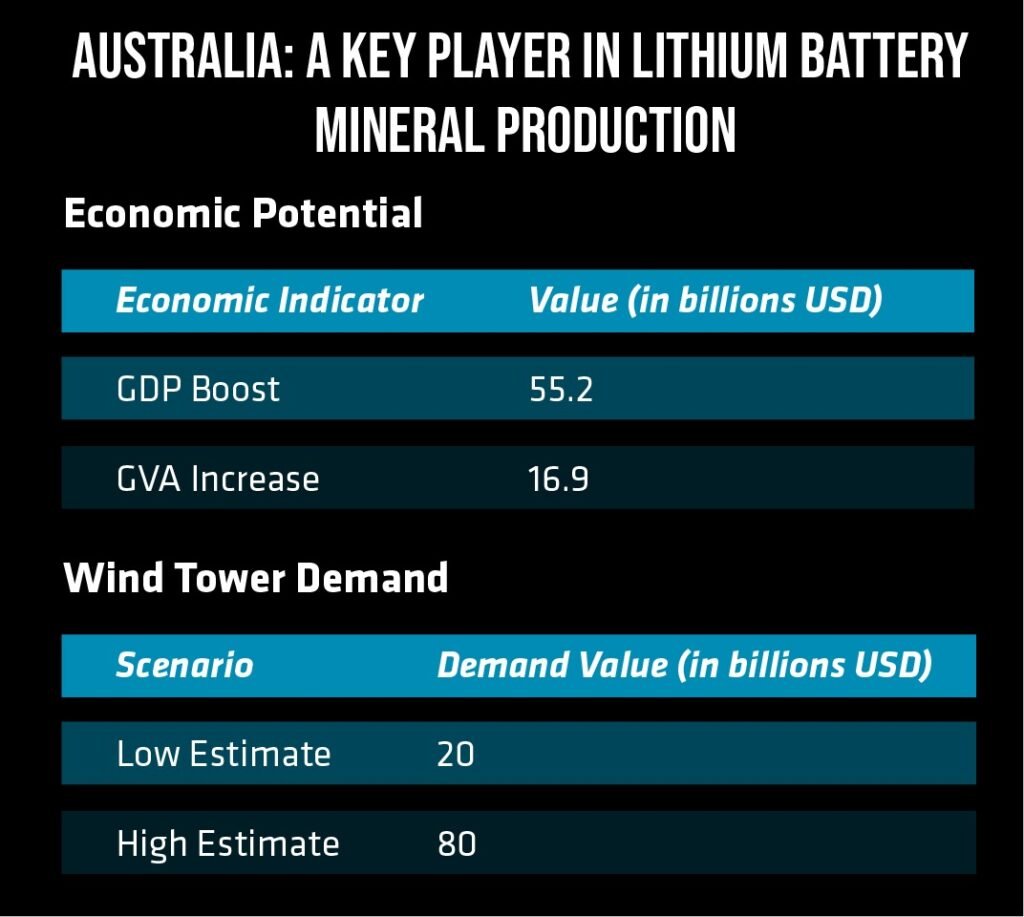
Lessons from Bangladesh’s Energy Transition Journey
Like Australia, Bangladesh’s energy transition journey has been challenging, yet offers valuable lessons. Bangladesh aims to reduce carbon emissions by 21.8% by 2030, emphasizing renewable energy and energy efficiency in its 2021 Nationally Determined Contributions (NDCs).
As a Climate and Clean Air Coalition partner, it targets a 72% decrease in black carbon and a 37% reduction in methane by 2040. Bangladesh allocates 6-7% of its annual budget to climate resilience, with 75% sourced domestically. Renewable energy accounts for 2.93% (650.14 MW) of its total 22,215 MW energy mix, while 48% (10,678 MW) relies on natural gas.
As of June 2023, renewable resources had an installed capacity of 1,183 MW, constituting 4.5% of the total, with solar power contributing approximately 80%.
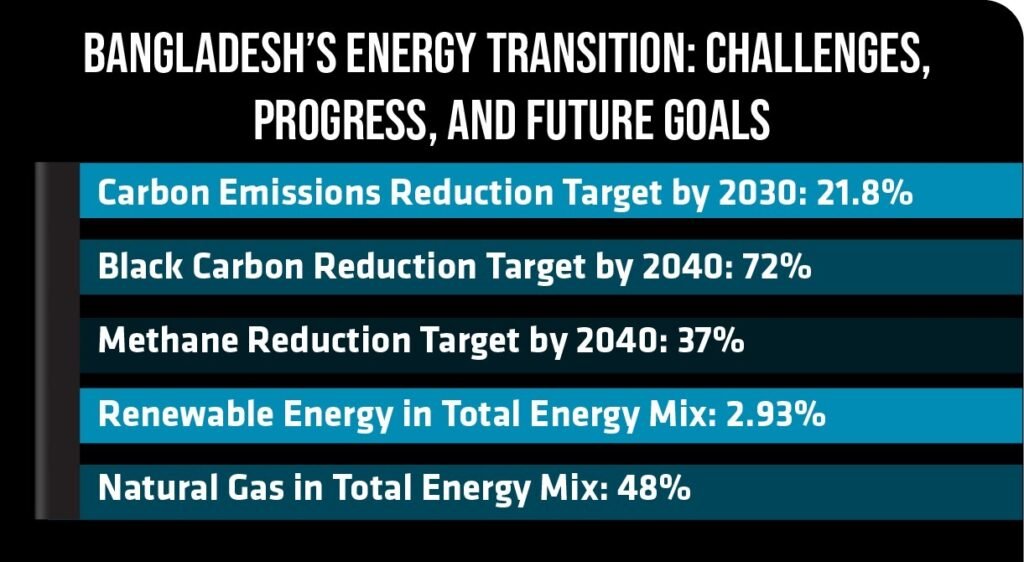
Bangladesh Resets Renewables Roadmap
Despite Bangladesh’s ambitious renewable energy policy established in 2008, which aimed for 10% of the country’s electricity to come from renewable sources, only a modest 3% has been achieved. The original targets were to generate 5% of electricity from renewables by 2015 and 10% by 2020, but as of June 2023, these goals remain unmet. The government has now set new objectives: 15 % by 2030, 40 % by 2041, and 100 % by 2050.
In line with its commitment to a low-carbon development path, Bangladesh is intensifying its focus on renewable energy and energy efficiency. The country has installed 541.7 MW of solar power capacity, with an additional 911.8 MW in progress, and has developed a 149 MW wind power plant.
Additionally, over 6 million solar home systems have been implemented in off-grid areas, and 4.5 million improved cook stoves have been distributed in rural regions.
Bangladesh has also emerged as a leader in adopting nature-based solutions (NbS) to enhance the impact of its energy transition and address climate change challenges. This is exemplified by initiatives such as mangrove restoration, floating agriculture, and community-based forest management.
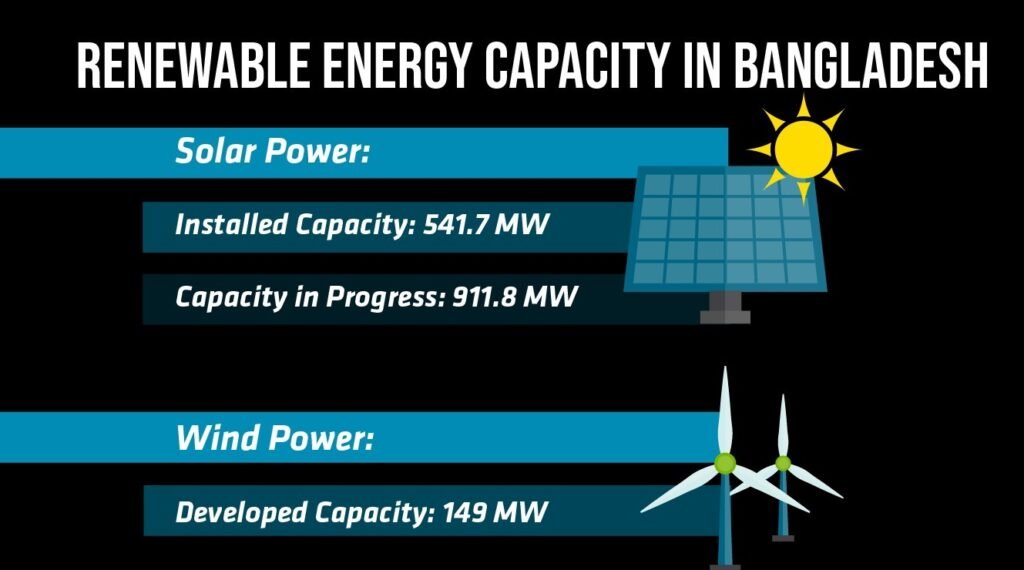
In the race to keep global warming well below 2°C, the journey ahead is daunting, especially for energy-intensive industries. Yet, nations like Australia and Bangladesh exemplify the drive and innovation required to meet this challenge. Australia’s bold strides in renewable energy and Bangladesh’s commitment to sustainable development demonstrate that the path to a greener future is paved with both ambition and actionable plans. The road to a sustainable future is long, but with concerted action and shared determination, a climate-resilient world is within reach.

